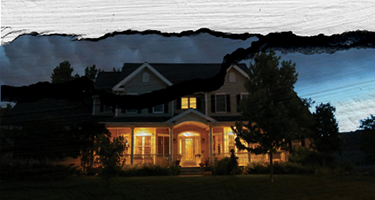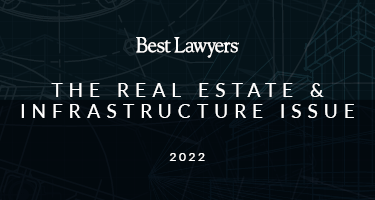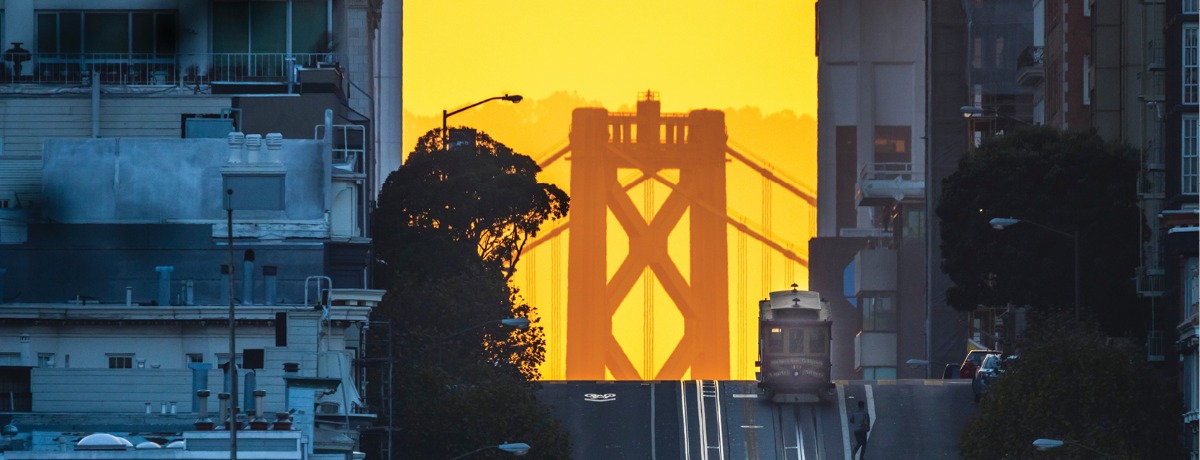Though almost universally deemed as “unprecedented,” the operational difficulties posed by COVID-19 are not entirely unknown to history. The owners, managers and boards of New York City’s multifamily buildings faced similar challenges a hundred years ago, when the so-called Spanish Flu of 1918 swept the globe. Now, as then, the social distancing rules and restrictions imposed by governments at all levels have compelled boards and residents alike to question the responsibility and duties of both the managers and occupants of residential buildings.
In an effort to gain a better understanding of the short- and long-term legal implications and issues affecting multifamily living during COVID-19, we’ve taken a look back through similar historical events. We researched and analyzed court cases relating to the aforementioned Spanish Flu as well as the Scarlet Fever epidemic of the mid-1800s and today’s COVID-19-related executive orders and federal and state case law and legislation.
WHO BEARS RESPONSIBILITY FOR PROTECTING THE HEALTH OF BUILDING OCCUPANTS?
It is the primary responsibility of building managers — regardless of whether they own rental buildings or serve as the board members or managers of co-ops or condos — to maintain the health and safety of their properties and residents. Thus, owners and managers are expected by law to maintain their buildings’ common areas in compliance with the public health code.
To quote the NYC Administrative Code §17-133 [Penalties], “Every person, corporation, or body that shall violate or not conform to any provisions of the health code of the City of New York, or any rule or sanitary regulation made, shall be liable to pay a penalty not exceeding the maximum amount allowed by the health code of the City of New York.”
Contextualized within the COVID-19 pandemic, this means that it is the duty of owners and managers to maintain the building and take all necessary and reasonable precautions to prevent disease spread and protect occupants.
This isn’t a new or unexpected delegation of responsibility. The duty of limiting infectious spread in common areas was recognized long ago in Majestic Hotel v. Eyre, 53 AD 273, 65 NYS 745 (1st Dept. 1900), a case involving an epidemic of scarlet fever. In that instance, the Court declared:
“We doubt not, if the landlord was guilty of affirmative negligence, or negligently suffered acts to be done by which a contagious disease was introduced into a thickly-populated hotel or tenement house, or, upon the breaking out of a contagious disease upon the premises, if he, retaining and exercising a general control over the public parts of the house, should negligently omit to take precautions to prevent the spread of the epidemic, or otherwise to protect the tenants from contagion, when the means lay within his power so to do, a case might be made which would avail as a justification for the surrender of the premises.”
ESTABLISHING THE RIGHTS AND RESPONSIBILITIES OF RESIDENTS
Residents bear a similar, if different, obligation to prevent the spread of infection. Tenants, shareholders, unit owners, and all other occupants living in or otherwise present in buildings within a pandemic zone are subject to all of the federal, state, and local social distancing guidelines and restrictions.
In New York State, the most significant restrictions on residents’ personal freedom of movement and social interaction stem from the Governor’s executive orders. The Governor’s authority on this matter stems from his preexisting authority to declare a disaster emergency and to — as per Executive Law §§28 and 29-a — “issue any directive during . . . [an] epidemic, disease outbreak” that “must be necessary to cope with the disaster and may provide for procedures reasonably necessary to enforce such directive.”
As such, Governor Andrew Cuomo has issued a total of 20 executive orders between the pandemic’s arrival in March and the date that this article was written. En masse, those orders have impacted the operations of hundreds of thousands of buildings in New York City. They have mandated the closing of the bars and restaurants that operate as commercial tenants — many of them in apartment buildings — as well as all gym facilities in and beyond residential properties, until further notice.
Moreover, while some residents may chafe at being barred from valued amenities or forced to comply with pandemic-related movement restrictions, the clear authority of the law undergirding gubernatorial executive orders — as well as the clarity of the Condominium Act — will likely ensure that any claims that these restrictions are in breach of the warrant of habitability or contract will most likely fail in court.
To conclude: building managers and administrators must make all reasonable effort to adhere to the Governor’s orders and do their part to both slow the spread of COVID-19 and preserve the health and safety of their residents. Both management and building occupants are subject to the enforcement of those orders by local law enforcement.
LEVERAGING THE LESSONS OF THE PAST IN CURRENT CONSIDERATIONS
As noted at the top of this article, the current pandemic — and the legal considerations stemming from it — are not entirely unprecedented. There are, in fact, court rulings from generations past that provide some insight into how cases arising out of the COVID-19 experience may be dealt with when social distancing restrictions relax and the courts reopen.
For example, previous rulings suggest that residents who leave their “uninhabitable” New York City apartments to weather the pandemic in upstate or Hamptons-area retreats while hoping for an abatement or forbearance on their lease, maintenance, or common charges obligations will find themselves disappointed.
In the Majestic Hotel v. Eyre decision mentioned above, judges provided the following comments to a tenant who fled his New York City apartment to ride out the pandemic elsewhere:
“So far as physical surroundings were concerned, the apartments were as habitable when the defendant voluntarily vacated them as when they were leased. It is also clear that after the fever was discovered the usual precautions known to science were taken to isolate the cases and prevent the spread of the disease. There were about 400 persons occupying apartments under lease in the hotel at the time of the breaking out of the fever; and for the most part [they]…continued to remain and occupy their apartments, without detriment to either health or comfort. The defendant abandoned his apartments on account of the fear of contagion to himself and family. We are, therefore, to see if this is sufficient to excuse the payment of rent. We know of no ground upon which the payment of rent can be successfully resisted.”
Though almost universally deemed as “unprecedented,” the operational difficulties posed by COVID-19 are not entirely unknown to history. The owners, managers and boards of New York City’s multifamily buildings faced similar challenges a hundred years ago, when the so-called Spanish Flu of 1918 swept the globe. Now, as then, the social distancing rules and restrictions imposed by governments at all levels have compelled boards and residents alike to question the responsibility and duties of both the managers and occupants of residential buildings.
In an effort to gain a better understanding of the short- and long-term legal implications and issues affecting multifamily living during COVID-19, we’ve taken a look back through similar historical events. We researched and analyzed court cases relating to the aforementioned Spanish Flu as well as the Scarlet Fever epidemic of the mid-1800s and today’s COVID-19-related executive orders and federal and state case law and legislation.
WHO BEARS RESPONSIBILITY FOR PROTECTING THE HEALTH OF BUILDING OCCUPANTS?
It is the primary responsibility of building managers — regardless of whether they own rental buildings or serve as the board members or managers of co-ops or condos — to maintain the health and safety of their properties and residents. Thus, owners and managers are expected by law to maintain their buildings’ common areas in compliance with the public health code.
To quote the NYC Administrative Code §17-133 [Penalties], “Every person, corporation, or body that shall violate or not conform to any provisions of the health code of the City of New York, or any rule or sanitary regulation made, shall be liable to pay a penalty not exceeding the maximum amount allowed by the health code of the City of New York.”
Contextualized within the COVID-19 pandemic, this means that it is the duty of owners and managers to maintain the building and take all necessary and reasonable precautions to prevent disease spread and protect occupants.
This isn’t a new or unexpected delegation of responsibility. The duty of limiting infectious spread in common areas was recognized long ago in Majestic Hotel v. Eyre, 53 AD 273, 65 NYS 745 (1st Dept. 1900), a case involving an epidemic of scarlet fever. In that instance, the Court declared:
“We doubt not, if the landlord was guilty of affirmative negligence, or negligently suffered acts to be done by which a contagious disease was introduced into a thickly-populated hotel or tenement house, or, upon the breaking out of a contagious disease upon the premises, if he, retaining and exercising a general control over the public parts of the house, should negligently omit to take precautions to prevent the spread of the epidemic, or otherwise to protect the tenants from contagion, when the means lay within his power so to do, a case might be made which would avail as a justification for the surrender of the premises.”
ESTABLISHING THE RIGHTS AND RESPONSIBILITIES OF RESIDENTS
Residents bear a similar, if different, obligation to prevent the spread of infection. Tenants, shareholders, unit owners, and all other occupants living in or otherwise present in buildings within a pandemic zone are subject to all of the federal, state, and local social distancing guidelines and restrictions.
In New York State, the most significant restrictions on residents’ personal freedom of movement and social interaction stem from the Governor’s executive orders. The Governor’s authority on this matter stems from his preexisting authority to declare a disaster emergency and to — as per Executive Law §§28 and 29-a — “issue any directive during . . . [an] epidemic, disease outbreak” that “must be necessary to cope with the disaster and may provide for procedures reasonably necessary to enforce such directive.”
As such, Governor Andrew Cuomo has issued a total of 20 executive orders between the pandemic’s arrival in March and the date that this article was written. En masse, those orders have impacted the operations of hundreds of thousands of buildings in New York City. They have mandated the closing of the bars and restaurants that operate as commercial tenants — many of them in apartment buildings — as well as all gym facilities in and beyond residential properties, until further notice.
Moreover, while some residents may chafe at being barred from valued amenities or forced to comply with pandemic-related movement restrictions, the clear authority of the law undergirding gubernatorial executive orders — as well as the clarity of the Condominium Act — will likely ensure that any claims that these restrictions are in breach of the warrant of habitability or contract will most likely fail in court.
To conclude: building managers and administrators must make all reasonable effort to adhere to the Governor’s orders and do their part to both slow the spread of COVID-19 and preserve the health and safety of their residents. Both management and building occupants are subject to the enforcement of those orders by local law enforcement.
LEVERAGING THE LESSONS OF THE PAST IN CURRENT CONSIDERATIONS
As noted at the top of this article, the current pandemic — and the legal considerations stemming from it — are not entirely unprecedented. There are, in fact, court rulings from generations past that provide some insight into how cases arising out of the COVID-19 experience may be dealt with when social distancing restrictions relax and the courts reopen.
For example, previous rulings suggest that residents who leave their “uninhabitable” New York City apartments to weather the pandemic in upstate or Hamptons-area retreats while hoping for an abatement or forbearance on their lease, maintenance, or common charges obligations will find themselves disappointed.
In the Majestic Hotel v. Eyre decision mentioned above, judges provided the following comments to a tenant who fled his New York City apartment to ride out the pandemic elsewhere:
“So far as physical surroundings were concerned, the apartments were as habitable when the defendant voluntarily vacated them as when they were leased. It is also clear that after the fever was discovered the usual precautions known to science were taken to isolate the cases and prevent the spread of the disease. There were about 400 persons occupying apartments under lease in the hotel at the time of the breaking out of the fever; and for the most part [they]…continued to remain and occupy their apartments, without detriment to either health or comfort. The defendant abandoned his apartments on account of the fear of contagion to himself and family. We are, therefore, to see if this is sufficient to excuse the payment of rent. We know of no ground upon which the payment of rent can be successfully resisted.”
Other challenges regarding the constitutionality of the Governor’s actions will inevitably arise. Can the courts be closed but for a select list of emergency actions? Can a governor effectively shut down a city and order its citizens to remain in their homes? The current crises — both public health and economic — have prompted these and a host of other complex questions at all levels of governance and community administration.
Adam Leitman Bailey, P.C.
























